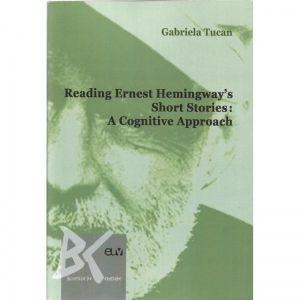Descriere
The purpose of this book, formed with a close reading of Ernest Hemingway's short fiction, is to recast the paradoxical tension in his writing: the emotional intensity of his short stories generated via a carefully restrained and objective style. lf the paradox lies in the nature of Hemingway's style, it is reasonable to argue that it is engendered by the act of reading, and can only be solved by consciously revisiting our responses to Hemingway and his short fiction. ln a way, this is our belated response to his invitation to discover what lies beneath the surface of his iceberg. ln storyworlds orchestrated by distant narrators, the reader's involvement in the text is not immediate and is always indirect. lf information is withheld, delayed, and suspended, how are readers able to deal with such a text and elucidate its meaning? How are they able to apprehend Hemingway's stories, some of the most resistant to the meaning-making process? What do they make of the large gaps intentionally created by the author? I think these questions present sufficient validity for narrative theories to take account of them. To achieve my goals, I attempt to formulate a theory that could explain how human cognitive processes can breathe life into literary texts. My argument is not that a cognitive orientation for literary studies is the 'right' or the 'only' approach, but that it has immense benefits for our reading activities. it is important to emphasise that the cognitive demonstrafions on Hemingway's texts are designed to have potentially larger implications for the short story's general mode of knowing.
Gabriela TUCAN is a Senior Lecturer in the Department of Modern Languages and Literatures at the West University of Timisoara, Romania. She holds two MA degrees in Creative Writing and Adult Education, and a PhD in Philology (awarded upon defending a thesis focusing on cognitive operafions required in reading Ernest Hemingway's short stories). Her broader research interests cover 20th American literature, academic writing, and cognitive poetics. She has published book chapters in edited volumes and articles in her areas of interest both abroad and in Romania.
Gabriela TUCAN is a Senior Lecturer in the Department of Modern Languages and Literatures at the West University of Timisoara, Romania. She holds two MA degrees in Creative Writing and Adult Education, and a PhD in Philology (awarded upon defending a thesis focusing on cognitive operafions required in reading Ernest Hemingway's short stories). Her broader research interests cover 20th American literature, academic writing, and cognitive poetics. She has published book chapters in edited volumes and articles in her areas of interest both abroad and in Romania.

